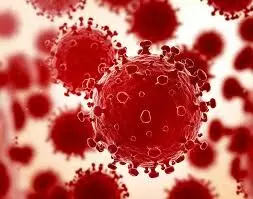CCMB scientists raise red flag over novel variants of the SARS-CoV-2
Scientists at the city-based Centre for Cellular and Molecular Biology (CCMB) have found that few novel variants..../
By Newsmeter Network
Hyderabad: Scientists at the city-based Centre for Cellular and Molecular Biology (CCMB) have found that few novel variants of the SARS-CoV-2 are spreading more in certain states, especially in southern India.
"We now have emerging evidence that N440K is spreading a lot more in the southern states. Closer surveillance is needed to understand its spread properly. Accurate and timely detection of the new variants that may show greater infectivity or worse clinical symptoms, including escape from immune response, will be extremely important to pre-empt disastrous consequences," said Dr Rakesh Mishra, Director, CCMB.
In a recent research, the authors explained how different Coronavirus variants gained prevalence in India during last year. One of the variants, the A3i, had mutations that were predicted to make its spread slower.
What is Spike protein?
The SARS-CoV-2 spike protein is required for binding the receptors to human cells. Mutations in this protein can help the virus in some cases. It can increase viral transmission rates by enhancing its affinity to human receptors.
Some of these Coronavirus variants can also escape immune response and cause reinfection. "Human immune systems cannot identify them from previous infections because of the changes in their protein structures. We need to have a focused approach towards monitoring the virus mutations. India has not been sequencing SARS-CoV-2 isolates to full capacity, having deposited only about 6,400 genomes so far. The government's initiative, INSACOG, which aims to sequence 5 percent of all positive cases, should soon address this," concluded Dr Divya Tej Sowpati, the co-corresponding author.
Physical distancing most effective in curbing further spread
According to scientists, the best way to control potential damage is to exercise extensive genome surveillance and take measures to prevent the spread of new variants as and when detected. While vaccines are helpful, social vaccines such as usage of masks, hand hygiene, and physical distancing are the most effective weapons we have against this pandemic.
"The success in the development and administration of vaccines is promising but other non-therapeutic prevention measures, such as masks and physical distancing will continue to be most effective in curbing further spread of the disease. Lesser spread of the virus also decreases the scope for emergence and accumulation of harmful mutants," said Dr Surabhi Srivastava, the lead author of the study.